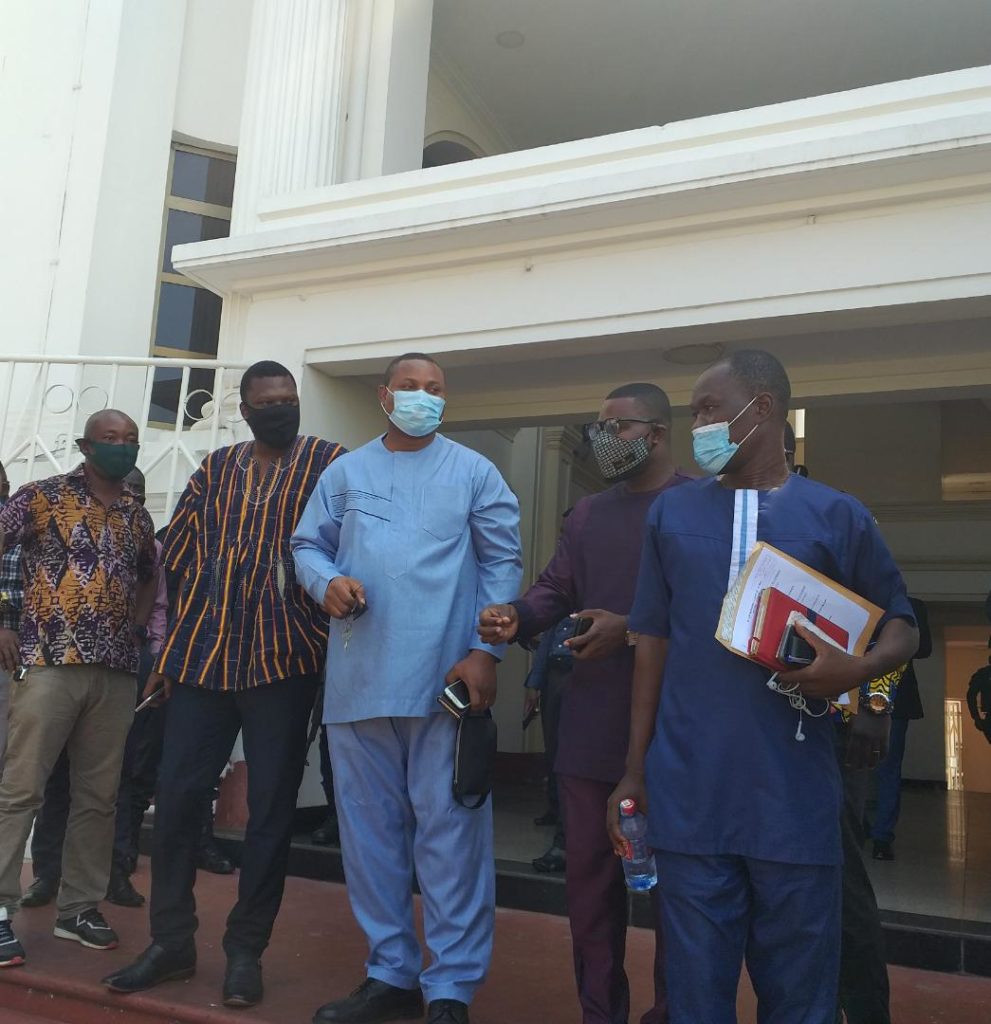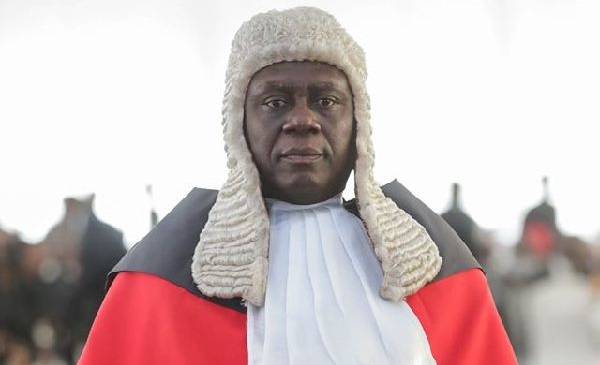NDC vs EC: Supreme Court throws out IMANI’s friend of the court application
The Supreme Court has dismissed an application filed by think tank, IMANI Africa and other civil society organisations, to be a friend of the court in the ongoing National Democratic Congress case against the Electoral Commission.
IMANI had filed an Amicus Curiae not to be a party to the case, but to assist the Supreme Court through offering information, expertise or insight that has a bearing on the issues in the case.
Amicus curiae is one who assists the court by furnishing information or advice regarding questions of law or fact. He/she is not a party to a lawsuit and thus differs from an intervenor who has a direct interest in the outcome of the lawsuit and is, therefore, permitted to participate as a party to the suit.
The NDC is in court challenging the decision of the EC to exclude the existing voter identification card and birth certificate as proof of eligibility for a new voter card scheduled for June 30.
It is the case of the country’s largest opposition party that the exclusion of the existing voter ID card will disenfranchise some Ghanaians and deny them the right to vote.
IMANI and other 17 civil society organisations had for months argued against the compilation of a new register, insisting that it did not have value for money.
According to the CSOs, the biometric verification machines had continuously been improved since 2016, with the EC spending more than $60 million in updating the verification machines.

The EC has explained severally, among other things, that the current register was not fit for purpose, citing the over bloated nature of the register and the EC’s own inertia in complying with the Supreme Court ruling in 2016 which directed the EC to delete names of voters who registered with the National Health insurance Card.
The Supreme Court had ruled in the Abu Ramadah Case in 2016 that the NHIS card was not proof of nationality. It then ordered the EC to remove the names of such people on the register and offer them an opportunity to re-register.
The EC in its response to the current suit by the NDC says that directive by the Supreme Court in 2016 was not carried out thoroughly as its own internal investigations have revealed otherwise.
Hence the EC is in court asking the Highest Court to back its decision to compile a more credible voters register.
Making a case to be allowed to be part of the application, counsel for the CSOs, Joe Aboagye Debrah, said the civil society organisations “are very well known and they have played an important role in the governance of the country. My Lord, we are bringing relevant information to help the court. We are not only restating information which is already, there but additional information.”
Lawyers for the other parties in the case however, opposed IMANI’s and the other CSOs presence in the case, in which the National Democratic Congress is challenging the Electoral Commission’s decision to exclude the existing voter ID card and birth certificates as requirements for registration for a new voter ID.
They insisted that the CSOs would not add anything to the case hence their application should be thrown out.
The Deputy Attorney-General, Godfred Dame, said the application was supposed to bring some important information but that had not been the case.
His counterpart in the NDC, Godwin Edudzi Tamakloe, said there was nothing new in the CSOs application. Counsel for Mark Takyi-Banson, a private citizen whose suit was merged with that of the NDC also opposed the application.
With the parties and the Supreme Court opposing the application, the Supreme Court unanimously tossed out the IMANI brief, which it said had no place in law.
“The need for an amicus brief is not supported by law, we have therefore dismissed the application for the CSOs on the amicus brief,” the Chief Justice Kwasi Anin Yeboah said.
An affidavit in opposition to this request signed by the Commission’s Chairperson Jean Mensah said the CSOs had failed to draw the attention of the Supreme Court to any legal requirement or decision that the parties in the case overlooked.
The EC also noted that the CSOs lacked expertise in law with respect to the case before the court hence did not merit to be part of the case adding that the CSOs utterance also suggested that they were supporting one side.
Not neutral
Earlier, the Chief Justice asked Mr Debrah if he had read the briefs of the merged case, to which he responded in the negative but was quick to add that he had seen some affidavits.
Not satisfied with the response, the Chief Justice wondered how the CSOs would be adding anything new to the case when he (Debrah) had not read writ.
Justice Paul Baffoe Bonnie, another member of the panel, noted that the court was aware of the position of the CSOs.
“We know more about this case more than you do. This case affects the legal community as well…you are not a friend of the court you are a friend of one party,” he said.’
But Mr Debrah insisted the CSOs were citizens interested in the case because they were citizens who would be affected by the EC’s decision.
IMANI reacts
Outside the courtroom, Franklin Cudjoe, the President of IMANI expressed dissatisfaction with the ruling.
Background
The opposition National Democratic Congress (NDC) on June 11 abandoned its legal case challenging the constitutional mandate of the EC in compiling a new register.
Lawyer for the NDC, Mr Godwin Tamakloe, abandoned the NDCs legal challenge on its two legal arguments.
The NDC’s suit at the Supreme Court is based on two premises – first, that the attempt by the EC to compile a new registration exercise was unconstitutional and second that the decision of the EC to exclude an existing voter ID as a form of identification for the exercise was also unconstitutional.
That was after the court told counsel that per the rules of court, a party cannot be seeking a relief and also asked to be granted another relief in the alternative.
Counsel took a cue from the bench and abandoned the relief that had to do with the EC’s constitutional mandate to conduct the registration exercise and subsequently abandoned its legal case.
The court earlier directed the EC to justify why it was excluding the existing voter ID cards from the registration process. It did.
A day later, the EC was hit with a fresh suit challenging its decision to compile a new register.
The suit wants the Supreme Court to properly interpret Article 45(a) of the 1992 constitution which gives the EC the power to compile a voter’s register.
It states: the Electoral Commission shall have the power to “(a) compile the register of voters and revise it at such periods as may be determined by law.”
The suit was filed by a private citizen, Mark Takyi-Banson.
But the court has subsequently merged the two cases and would make a pronouncement tomorrow.




Indeed Ghana is working again simply because the Institutions are in place.Bravo to the Apex Court of Ghana
How can counsel for Imani try to support the apex court when he has not even read the briefs of the merged case.
Why won’t the SC received it and know it’s content before such a haste decision. And why is the EC and AG afraid of the case. After all Imani is a research body and might have decovered concrete info which may be helpful or making them friends of the Court.